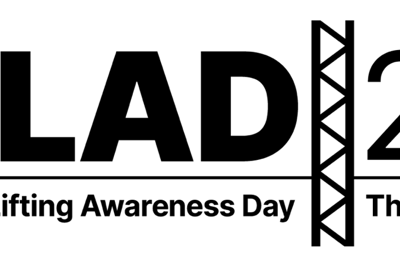Thought leaders from around the world have come together to look at the current global safety challenges and potential solutions in the areas of academia, industry, regulation, and society-at-large. The report, Process Safety for the 21st Century, was launched today at the 10th World Congress of Chemical Engineering (WCCE10) in Barcelona, Spain.
The report sets out a road map for the future of process safety as a discipline, in various areas of society. The Institution of Chemical Engineers (IChemE) Safety Centre, led the project together with the Mary Kay O’Connor Process Safety Center (MKOPSC). It received input from contributors in the UK, Europe, US, Asia, and Australia – working as engineers, consultants, managers, regulators, academics, operators, and senior executives.
The report overwhelmingly addresses the issue of a growing population, taking inspiration from IChemE’s Chemical Engineering Matters policy document which sets out challenges for the chemical engineering profession in general. According to the United Nations DESA report in 2015, the global population will reach 8.5 billion people by 2030, a 15% increase. This growth will generate further demand for food, water, energy, and healthcare – and work is already being done in science and engineering to tackle the impact this will have on the planet. Process Safety for the 21st Century digs deeper in to the sustainable and responsible production of these resources, with the need for good process safety practices at the forefront.
IChemE Safety Centre (ISC) Director, Trish Kerin, launched the report at the World Congress of Chemical Engineering in Barcelona, Spain and called on the profession to add further input to help it evolve. She said:
“This unique initiative will provide recommendations to anyone interested in improving process safety performance for future generations. This is not a static piece of literature, the ISC, together with MKOPSC wants to see it grow as a result of ongoing input from our community.
“A rising population will result in a rise in process safety challenges, but ultimately this will drive sustainable improvement. This is where chemical engineering and process safety matters. Safe operating plants will ultimately have an impact on surrounding environments and local people, and this report draws attention to the major role society-at-large will have to play. We cannot be complacent.”
MKOPSC Director, Dr Sam Mannan, added:
“We are delighted to work with the IChemE Safety Centre on the launch of this report. We have had input from a fantastic cross-section of process safety experts, from all over the world. This is only the beginning, and I’m intrigued to see the input we receive as a result of the consultation.
“Our world is changing, and it can only be done effectively with strong process safety knowledge and understanding at the forefront.”
The report is currently open for consultation, and professionals are invited to provide their input by contacting the IChemE Safety Centre via email ([email protected]). The report is available to download at https://www.ichemesafetycentre.org.
Related links
Process Safety for a 21st Century
Process Safety for a 21st Century – PDF Download
Notes to media
For more information please contact:
Tara Wilson, PR and Communications Manager, IChemE
t: +44 (0) 1788 534454
e: [email protected]
- Valerie Green, Associate Director, MKOPSC
T: +1 (979) 845-6884
Rachael Fraser, PR and Communications Executive, IChemE
t: +44 (0) 1788 534435
e: [email protected]
Tracey Abrahart, International Co-ordinator, ICheme Safety Centre
e: [email protected]
What is chemical engineering?
Chemical, biochemical and process engineering is the application of science, maths and economics in the process of turning raw materials into everyday, and more specialist, products. Professional chemical engineers design, construct and manage process operations all over the world. Oil and gas, pharmaceuticals, food and drink, synthetic fibres and clean drinking water are just some of the products where chemical engineering plays a central role.
IChemE: www.icheme.org
With a membership exceeding 44,000 members in over 120 countries, and offices in the Australia, New Zealand, Singapore, Malaysia and the UK; IChemE aims to be the organisation of choice for chemical engineers. It promotes competence and a commitment to best practice, advances the discipline for the benefit of society and supports the professional development of its members. IChemE is the only organisation to award Chartered Chemical Engineer and Professional Process Safety Engineer status.
IChemE Safety Centre (ISC): https://www.ichemesafetycentre.org






